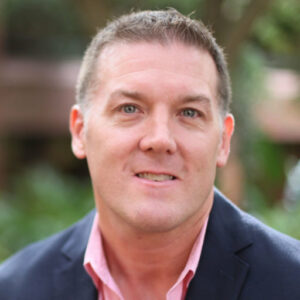Research Spotlight: Kent Crippen
Q & A with Kent Crippen, Ph.D., Associate Professor in the School of Teaching and Learning
What basic questions does your research seek to answer?
My research program embraces the grand challenge of providing an inclusive and robust science, technology, engineering, and mathematics (STEM) workforce through the design, development, and evaluation of cyberlearning environments—those providing authentic experiences in STEM through the use of networked learning technologies. Currently, the following overarching questions guide this inquiry:
- What forms of cyberlearning are effective and transformative for addressing the chronic problem of under-representation of specific populations of people in STEM?
- How can the use of design in this pursuit inform our understanding of learners, the processes of knowing, learning and teaching, as well as amateur and professional development in both formal and informal STEM education contexts?
In the practice of our research, these questions are focused on compelling practical problems that exist in real-world settings that are complex, enduring, and difficult to solve, like the disproportionately low numbers of females pursuing engineering degrees. This work involves the dual purpose of trying to solve the learning problem(s) while at the same time generating new insights related to the processes of learning and the relationships among the people, tools, and context of the problem. Through our work, we seek to describe how learning occurs in a particular setting (for whom?) and to detail the required environmental characteristics for affecting the desired outcomes (under what conditions?).
What makes your work interesting?
The most interesting parts of my work are the people I collaborate with and the problems we try to address together. Collaboration and mentoring are two core values of my research group and they are reflected in all aspects of our work. Collaboration requires an intimate working relationship and melding of priorities among a diverse team of people, including students, policy makers, and researchers with diverse forms of expertise. Successful research involves communication and negotiation in order to leverage the team’s capacity for addressing the problem in a sustainable way while also affording the opportunity to develop our theoretical understanding of the problem itself.
What are you currently working on?
We are currently engaged with three major projects that are funded by the National Science Foundation and the National Institutes of Health, respectively: FOSSIL (DRL-1322725), ChANgE Chem (DUE-124568, 1625378), and CATALySES (SEPA-1R25OD021901-01).
In collaboration with faculty from the Florida Museum of Natural History, FOSSIL is addressing the limited participation by the public in natural history research through a networked community of practice in which amateur and professional paleontologists collaborate in learning, the practice of science, and outreach. We have developed an evidence-based social messaging campaign that is enacted across an ecology of different technologies, including Facebook, Twitter, YouTube, and our own myFOSSIL community site (www.myfossil.org). We are currently investigating activities for amateurs that are situated within the established best practices for paleontology—from planning a field trip to having a specimen included in a museum (both physical and virtual)—including the social spaces where they exist (e.g., face-to-face, virtual, or combination).
Working with colleagues from engineering and chemistry, ChANgE Chem is transforming the general chemistry curriculum for engineering students to a more contextually relevant and engaging experience. This endeavor employs the use of cognitive apprenticeship strategies to develop activities that emulate and make explicit the way engineers think, comprehend, and work. We have re-envisioned the discussion component of the courses (i.e., recitation) with a series of mini-design projects and are currently using our model to transform the laboratory curriculum based upon the Grand Challenges for Engineering.
CATALySES is the continuation of a long-standing collaboration with the UF Center for Pre-Collegiate Education and Training (CPET) on a scientist-teacher partnership model of professional development for secondary teachers. With this current project, we are investigating how the scaffolded process of constructing interactive online materials is mediated by teachers’ classroom experiences and local context to influence the translation of scientist-teacher experiences to their practice.






